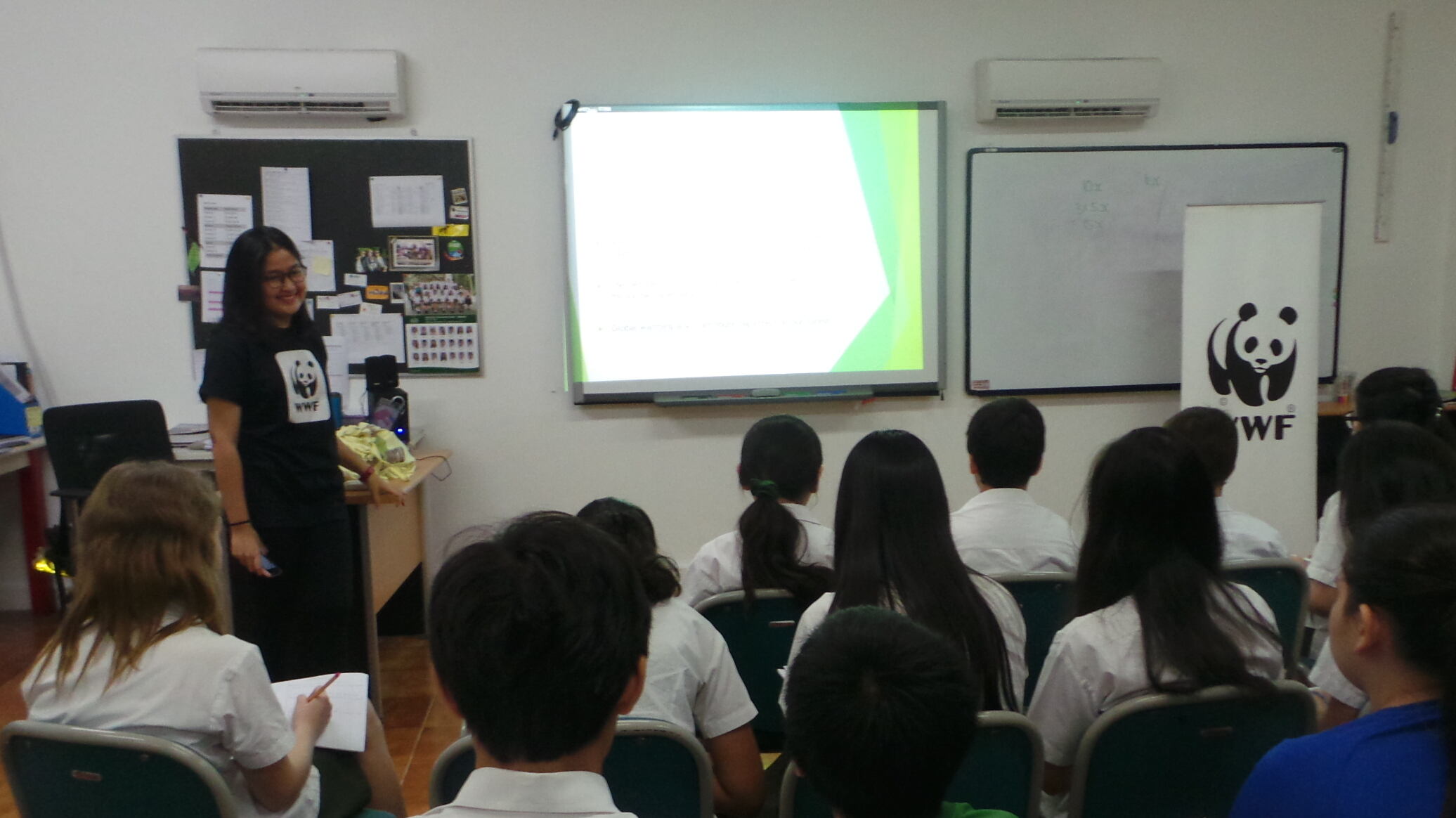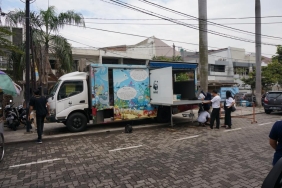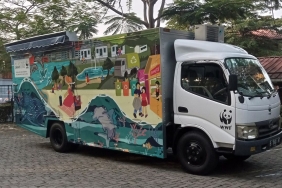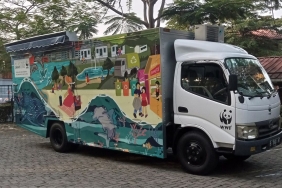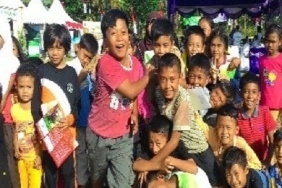LEARN AT HOME WITH PANDA MOBILE VIRTUAL CLASS
In an effort to anticipate the widespread spread of the coronavirus or Covid-19, the Indonesian government urges the public to practice physical distancing. People are advised to maintain physical distance from others, reduce activities outside the home, and avoid crowds. In fact, the government is also "shutting down" the world of education.
The existence of a distance learning policy or learning from home does not discourage WWF-Indonesia's Panda Mobile team from spreading environmental conservation education. This policy actually encourages the Panda Mobile team to make various learning innovations.
Distance is not an obstacle, Panda Mobile Virtual Class is ready to accompany students and the general public in learning the world of conservation. Participants can join the class even when they are #athome. Various interactive activities such as environmental discussions, watching movies, coloring, recycling t-shirt bags, and making masks from patchwork can still be done together. Participants can even take a virtual tour to get a closer look at WWF-Indonesia's work sites.
This time, Panda Mobile Virtual Class was attended by 4th grade students of SDI Al Azhar Summarecon Bekasi. The material presented in the learning session held on Monday (13/04) was biodiversity. The students were invited to recognize umbrella animals that have a wide range, and also learn about their habitats. By participating in this class, participants learned that WWF-Indonesia in collaboration with various parties, the government, and local communities in the area made efforts to conserve six umbrella animals in Indonesia. The six animals are orangutans, tigers, rhinos, elephants, whale sharks, and sea turtles.
One of the messages conveyed in this Panda Mobile Virtual Class is about forest conservation. If the habitat and the entire range of umbrella animals are well preserved, then the other animals in it can be well preserved too. However, there are various threats to biodiversity, including climate change, deforestation, overexploitation, and pollution.
After the presentation of material about the conditions and threats to biodiversity in Indonesia, SDI Al Azhar Summarecon Bekasi students were invited to take concrete actions to preserve the environment. It can be started in simple ways, such as saving paper and the use of other wood-based products, using water and electricity wisely, and recycling unused items. In addition, students can also practice an environmentally friendly lifestyle by rejecting the use of disposable products, especially those made from plastic, and using their own cutlery. Apparently, some ways to maintain biodiversity are a dilemma. "Sis, she said to save plastic. But, if we buy food from online apps, what do we do?" asked Sabrina Nadika, one of SDI AL Azhar's students.
But the Panda Mobile team has the answer. In order to encourage an eco-friendly lifestyle, online food ordering service providers usually provide an option to not include disposable cutlery. SDI Al Azhar Summarecon Bekasi students are advised to choose this feature. This simple action can reduce the world's plastic waste production rate, which reaches almost 300 million tons every year. Most of this amount is waste that is not recycled. Most of it is simply dumped into the ocean.
The Panda Mobile Virtual Class is planned to be conducted on an ongoing basis. This activity will continue even though the physical distancing appeal has been lifted. "Panda Mobile Virtual Class will continue to be available to address the wider public as one of WWF-Indonesia's conservation education media. So that we can reach areas throughout Indonesia, not only focus on Jabodetabek," said WWF-Indonesia Engagement Activation Officer Sani Firmansyah.
With the corona pandemic, we are all tested in making wise decisions for the Earth. However, we are not alone. With Panda Mobile Virtual Class, we can find solutions together in an effort to maintain biodiversity. Reducing the use of plastic is the same as saving the environment from pollution. Thus, the lifestyle of people in cities will also affect the preservation of nature.

